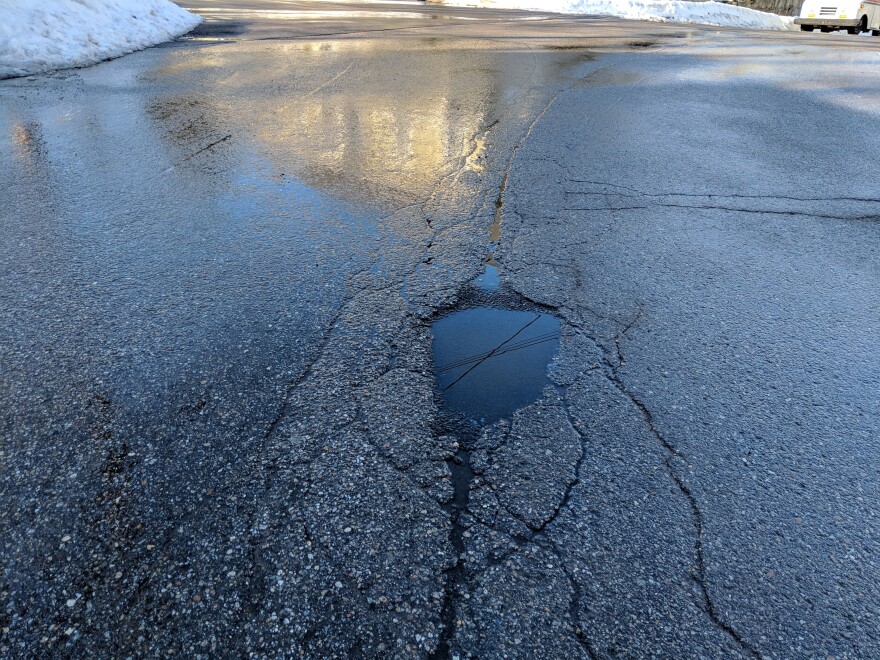Potholes are a yearly issue on New Hampshire roads. But this winter’s freezes and thaws have created a particularly gnarly situation for some New Hampshire towns. And according to UNH professor of engineering Jo Sias, that’s exacerbated by climate change.
“A lot of the circumstances that lead to the potholes are going to be increasing,” she said, as New Hampshire sees more freezing and thawing cycles, more rainfall, and rising seas.
New Hampshire public works officials say potholes have popped up more rapidly and in greater numbers than in previous years, after cycles of freezing and melting have caused water to expand and contract under the surface of the pavement.
Hampton Public Works deputy director Joe Lynch says this year’s weather has made for a severe pothole season, and his repair crews are feeling the demand.
“A typical winter, we’ll put a crew out a few days a week, just to stay ahead of them. This particular week, we’ve had three to four crews out on a full-time basis all day long,” he said last week.
Kürt Blomquist, the public works director in Keene, says there, it’s too early to tell if there are more potholes this year than in the past. But they’ve come on strong.
“Seems to be in the past, sometimes you start seeing a few potholes form here and there, but this year with the up and down weather we’ve had in the last several weeks, they have just come into full blossom,” he said.
Blomquist says his repair crews are out every day patching potholes, but fixing the cracks will be an uphill battle until the weather starts to warm up for good.
The city of Manchester has also seen an uptick in potholes, said James Ramos, chief of street operations.
How a changing climate creates the conditions for potholes
As climate change leads to an increase in the number of freeze-thaw cycles in New Hampshire, those cycles cause bodies of ice under roadways to get bigger, leading in turn to larger weaknesses when the ice thaws, Jo Sias said.
Climate change could also lead to more potholes as moisture under roadways increases, Sias said. Climate change has caused increased precipitation in New Hampshire, and sea-level rise may also cause groundwater tables to rise.
“As the soil has more moisture in it, it's weaker. And the weaker underlying soil means the pavement doesn't have the support that it's designed to have,” she said. “Loading from vehicles going across is going to break up the pavement faster, so we're going to see those potholes faster.”
And fixing the problem is tough. Maintaining roads and keeping cracks sealed will help minimize the impact, Sias said. But to truly fix the problem and prevent potholes, New Hampshire would need to rebuild roadways a couple of feet deep, and build pavement structures that can withstand increased moisture levels.








